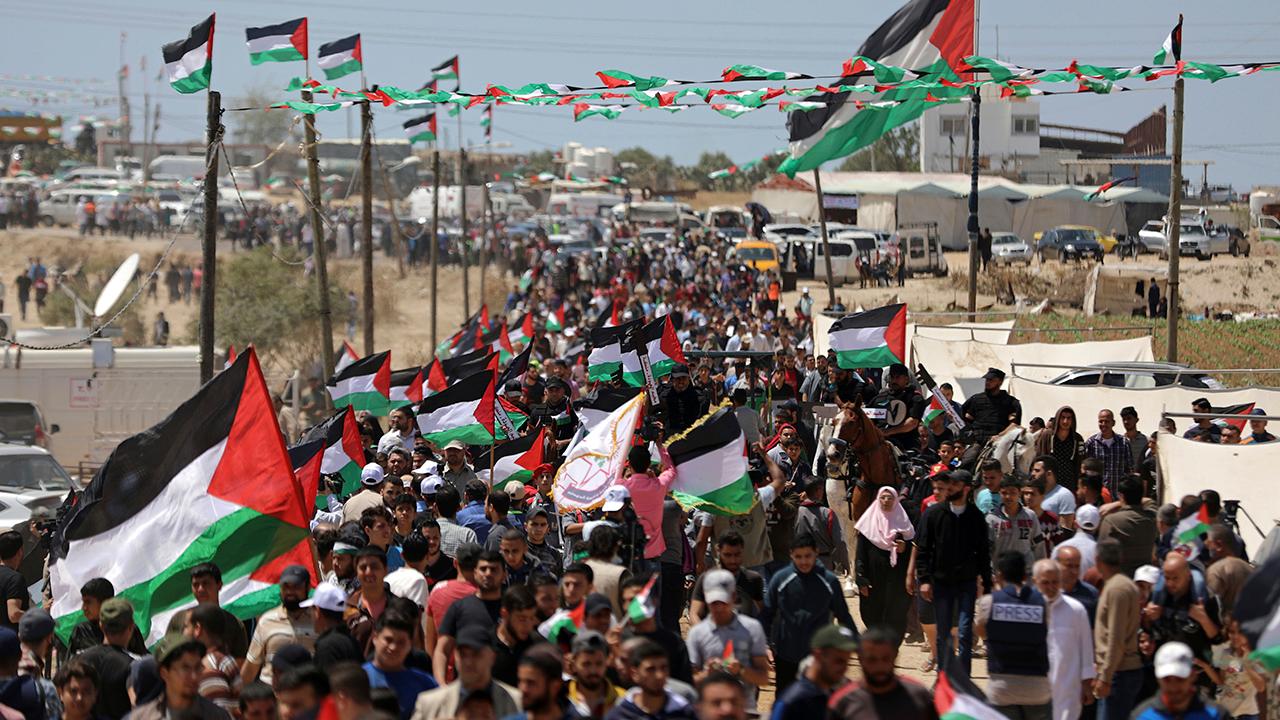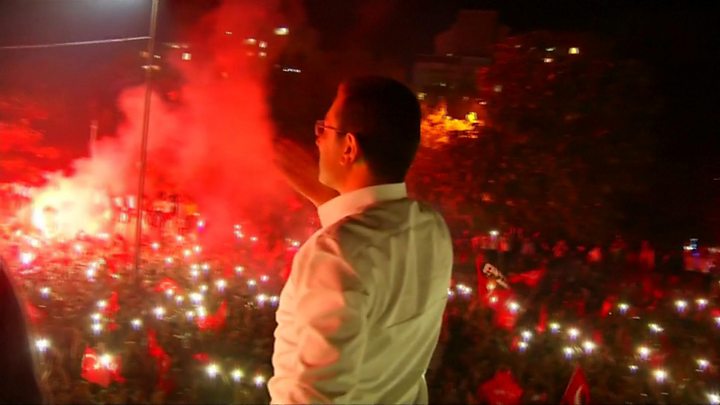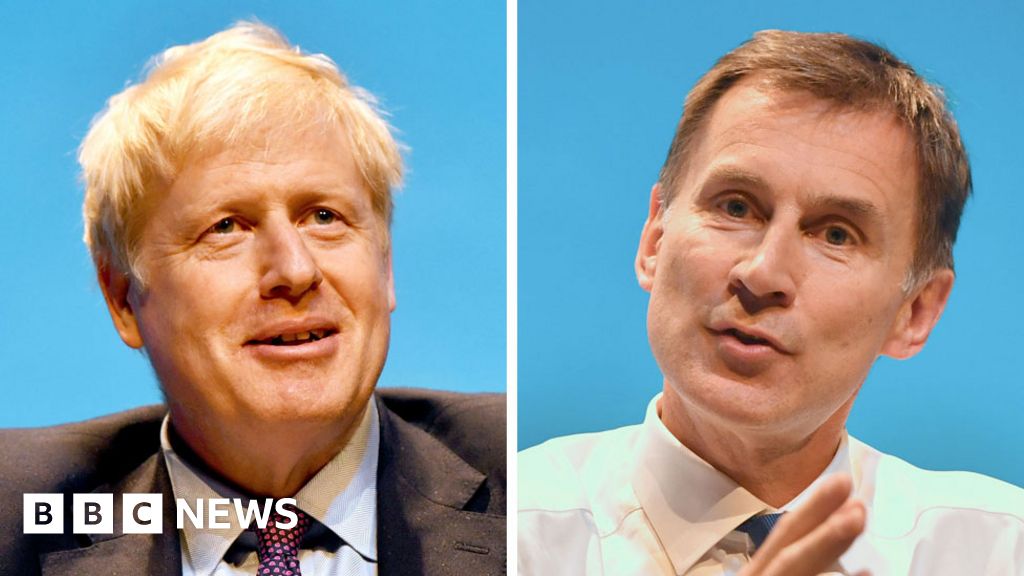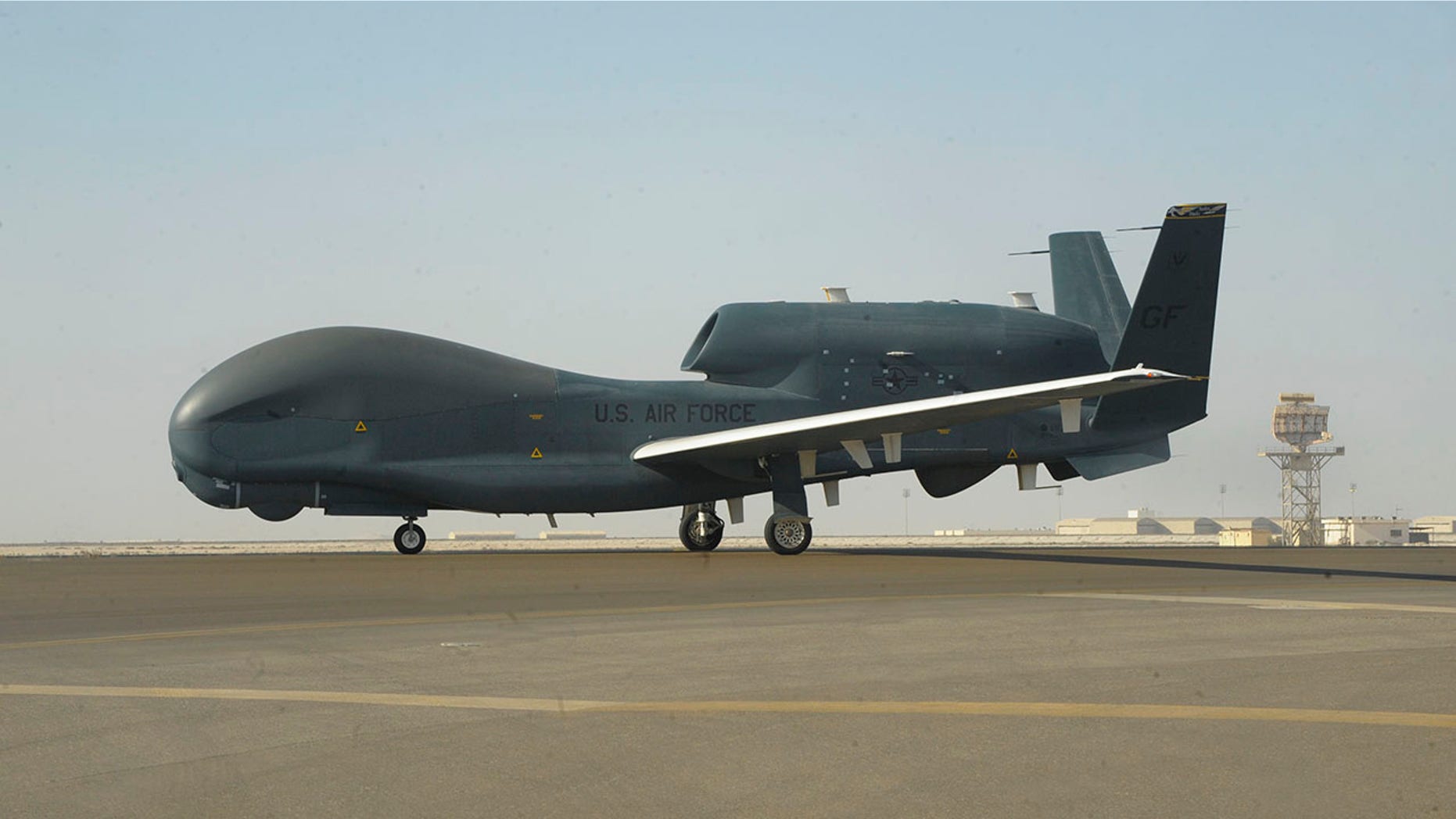Analysts have rebuked the economic part of the United States's Middle East peace plan for failing to address the main problem that has heavily curbed the Palestinian economy - the 52-year-old Israeli military occupation over the Palestinian territories.
The economic plan was released by the White House on Saturday and is set to be presented during a US-led workshop in Bahrain on June 25-26.
When the document was released, many noticed that the 40-page plan was void of any political context with the words "occupation", "freedom", "equality", "blockade" missing.
"The absence of those words is actually quite glaring and it's very indicative of what they see is the issue," Diana Buttu a Haifa-based analyst and former legal adviser to Palestinian peace negotiators told Al Jazeera.
"They've put together this optimal, pie-in-the-sky plan that any person who's involved in economic development would love to see. But it's not applicable to Palestine because they've taken away the political context."
At the heart of the plan is a proposed $50bn investment fund which would be split between Palestinians in the occupied territories (more than half of the total amount) and its neighbours Egypt, Lebanon and Jordan.
The fund will be used for 179 infrastructure and business projects, including building up the Palestinians' tourism sector.
However, it doesn't address the obstacles to freedom of movement that Palestinians face, living under the 12-year Israeli-Egyptian blockade on the Gaza Strip, or under occupation in the West Bank, surrounded by illegal Israeli settlements, deeming it a non-starter for many across the board.
The Palestinian Authority, which exercises limited rule in some areas of the West Bank, and Hamas, which governs Gaza, have both staunchly rejected the plan.
"Is Israel ever going to allow for the movement of goods? No. Is Israel going to allow this plan to be implemented? No. Can there be economic development under occupation? Again, the answer is no," Buttu said.
Many have lamented that the plan recycled old ideas such as the proposed $5bn transportation corridor which would connect the occupied West Bank to the besieged Gaza Strip.
The idea for a transportation corridor first emerged around 2005, when the RAND research organisation proposed to build "The Arc" rail line joining Gaza with other cities in the West Bank, intended to form Palestinian congruity and create conditions for economic growth and population growth.
The project never materialised due to complications.
'Cruelly ironic'
"[Kushner's economic plan] a mish-mash of old ideas, not anything new. [The plan] was portrayed as a fresh new perspective, which is simply not the case," Yara Hawari, a Palestine policy fellow at Al-Shabaka told Al Jazeera.
"You'll notice that the pitches they use in the plan are pitches from people from USAID programs, the very programs that the Trump administration cut, which is cruelly ironic.
"Convincing Palestinians of this is basically convincing them to take economic incentives in exchange for their rights," Hawari said.
A UN report in 2016 found that the economy of the occupied Palestinian territories might reach twice its size if the illegal Israeli military occupation was lifted.
"Occupation imposes a heavy cost" the report read citing Israeli "restrictions on the movement of people and goods; systematic erosion and destruction of the productive base; losses of land, water and other natural resources", as some of the impediments disrupting the territories' growth.
Palestinians haven't had full sovereign control over their economy due to a fragmented domestic market and separation from international markets, the blockade on Gaza, expansion of illegal Israel settlements, construction of the separation barrier on Palestinian territory and the isolation of East Jerusalem, the report stated.
Under international law, Israel as an occupier is obliged to foster economic development for Palestinians, whose territory it occupies.
Palestine's economy isn't faltering because of a lack of investments, but due to the occupation, analysts say.
"[The plan is] a list of all the things that we've been working on for the past 25 years and they have failed because of Israel's military occupation which this economic plan totally ignores, as if it doesn't exist," analyst Sam Bahour told Al Jazeera.
"We don't need an economic workshop to point to us to great projects [that can help] the Palestinian economy. We already know what those are. What we need to look at is how we can remove the restrictions that have been placed on us by Israel with the total support of the US," Bahour said.
In a blog post, Bahour has listed101 actions Israel can take to reduce tension created by occupation on the ground, yet the economic plan includes ideas such as a new university and bringing "5G telecommunications services" to Palestinians.
It took 12 years just to introduce 3G frequencies to Palestine just last year, Bahour noted.
Analyst Nur Arafeh has detailed how, since the Israeli occupation began in 1967, Israel has in fact sought to incorporate the occupied territories' economy into its own, while allowing for maximum expropriation of land.
Buttu told Al Jazeera that what is crucially lacking is the political will to end the occupation.
"What has been missing all of these years is pressure on Israel to actually let us be free. They've recycled the same concepts, repackaged them but what they're not willing to do is take on Israel. And that's the one issue that's going to set us free - it's getting Israel off of our backs," Buttu said.
Palestinians absent
Several prominent Palestinian businessmen declined the US's invitation to participate in the conference.
The Palestinian Authority has said it was not consulted about the plan and will not be attending the conference.
The money raised for the economic plan would reportedly be placed in a fund administered by a multinational development bank and the funds would be managed by an appointed board of governors.
$15bn would come from grants, $25bn in subsidised loans and about $11bn would come from private capital.
Notably, there is no mention of Palestinians managing the money.
The plan itself repeatedly mentions "applicable Palestinian authorities", Bahour noted, rather than established entities such as the Palestine Liberation Organization (PLO). The US closed the PLO's office in Washington DC in 2018, while the US does not recognise the State of Palestine.
Kushner has in the past voiced his opinion that Palestinians deserve "self-determination" but are not yet capable of governing themselves.
"It's a very colonial approach, that Palestinians can't govern themselves so we need to have a separate entity that's able to manage the funds," Buttu said.
"Usually when you look at economic development you look at the framework and context of states and yet they're trying to create a plan that doesn't at all involve any state, it doesn't involve the Palestinian Authority. In fact [Kushner's] trying to go around them.
"This all makes a very glossy, nice, pretty 38-page brochure, but in terms of the substance, it's never going to see the light of day because they refuse to address the political circumstances, that of occupation and denial of freedom."
Let's block ads! (Why?)
https://www.aljazeera.com/news/2019/06/israel-backs-palestinians-react-kushner-plan-190623191830426.html
2019-06-24 07:43:00Z
52780318659196






